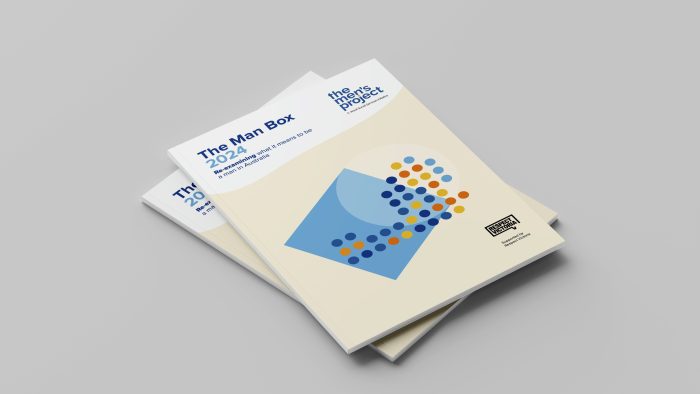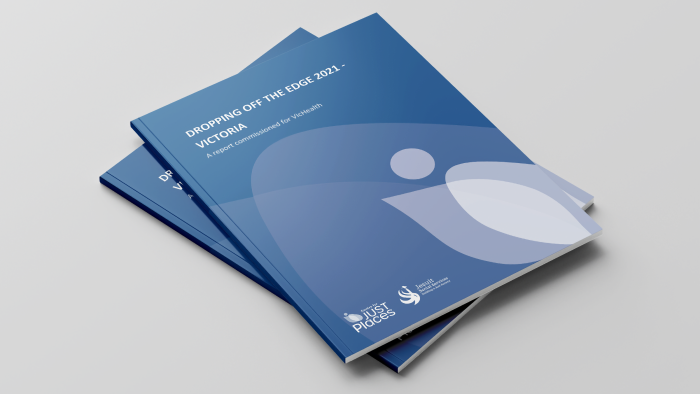-
![]()
Gender Justice
The Man Box: Re-examining what it means to be a man in Australia
'The Man Box: Re-examining what it means to be a man in Australia' is a comprehensive study that focuses on the attitudes to manhood and the behaviours of Australian men aged 18 to 45. This second edition of The Man Box research finds 'Man Box' attitudes are alive and well in Australia today, with a significant minority of young men agreeing there are social pressures on them to behave or act a certain way because of their gender.
-
![]()
Gender Justice
Identifying and understanding child sexual offending behaviours and attitudes among Australian men
Produced in collaboration with the University of New South Wales, 'Identifying and understanding child sexual offending behaviours and attitudes among Australian men' is the first nationally representative research into the prevalence of child sexual offending behaviours and attitudes. The report sheds unprecedented light on sexually abusive behaviours and feelings among Australian men.
-
![]()
Just Places
What works for place-based approaches? Research report and case studies
Place-based approaches are an innovative way to address disadvantage and inequity, strengthen resilience to crises in place, and build thriving and resilient communities. In 2021-22, the Centre led a consortium of research partners examining literature, evidence and practice to understand what features enable the success of place-based approaches and how to best support them – information essential to improving the wellbeing of Victorian communities into the future.
-
![Cover of Collaborative Action Plan]()
Just Places
Collaborative Action Plan for climate justice in Melbourne’s west
This Collaborative Action Plan is the result of a year-long project to articulate a shared vision for climate justice in Melbourne’s west. The Plan builds on the diverse contributions of individuals and organisations already working at the interface of climate change, health and social justice in Melbourne’s west, and seeks to further understand the localised and systemic drivers of climate vulnerabilities for community health and service organisations in Melbourne’s west.
-
![]()
Just Places
Dropping off the Edge – VicHealth report
VicHealth commissioned the Centre to produce this report which deep dives into locational disadvantage in Victoria, with a greater focus on health and wellbeing inequities.
-
![]()
Just Places
Climate Justice in Practice
Addressing social inequity and climate resilience through place-based capacity building with community service organisations and local governments. The Centre presented this paper at the State of Australasian Cities Conference 2021.
-
![]()
Just Places
Health, housing and ecological justice: Climate change and preventing homelessness deaths
This paper explores the health risks to homeless communities posed by increasingly frequent extreme weather caused by climate change.
-
![Stack of three printed copies of the Dropping Off The edge 2021 Report]()
Communal disadvantage
Dropping Off the Edge 2021
Dropping off the Edge 2021 is the fifth instalment in a research series, clearly showing that complex and entrenched disadvantage is experienced by a small but persistent number of locations in each state and territory across Australia. As a society we cannot, and should not, turn away from the challenge of persistent and entrenched locational disadvantage, no matter how difficult it may be to solve the problem.
-
![]()
Gender Justice
Unpacking the Man Box
Unpacking the Man Box is based on a survey of 1,000 young Australian men aged 18 to 30. The report builds on the findings of The Men’s Project’s 2018 report The Man Box. The new study finds young Australian men’s belief in rigid masculine stereotypes has a stronger impact on whether they will use violence, sexually harass women, or experience mental ill-health themselves, than other factors including their education levels, where they live or their cultural heritage.
-
![]()
Support after suicide
We were fighting the system as well as the illness: Family perceptions of how Victoria responds to people at risk of suicide and their loved ones
This report explores the perspectives of family members of people in Victoria whose loved ones took their own lives. It describes how they viewed Victoria’s complex mental health system, both in how it responded to their loved one and to themselves.









